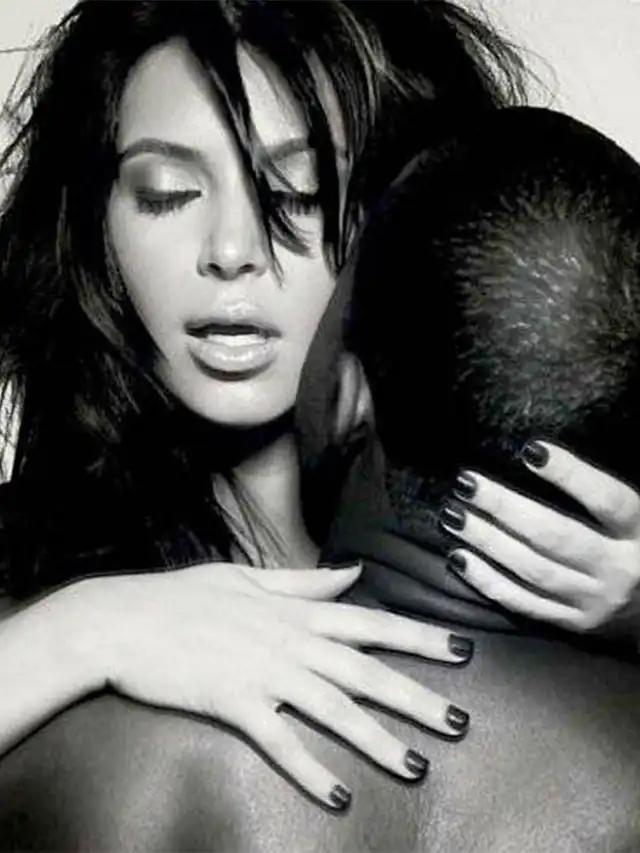Last Updated on August 9, 2024 by Paola Castillo
When all hell breaks loose in the quietest of nights – “Hold my hand, love.” is all we want to hear. – But it’s never that simple, is it? Anxiety is an unpredictable beast, autonomously inhaling and exhaling on the edge of the psyche’s precipice. Its form is no less elusive than air, and its intangible components surpass alchemy. This modern-day malaise is an unwavering coachman, ferociously driving the carriages of uncertainty with utter precision and inherently bad intent.
Indeed, helping a partner with anxiety is a steeplechase with ghosts. But is it invincible? Far from it. “-from this day forward, for better, for worse, for richer, for poorer, in sickness and health, to love and to cherish, until parted by death.” That’s love, especially when you’re supporting a partner with anxiety. As Marvin Gaye and Tammi Terrell once synchronously stated: “Ain’t no mountain high enough” when you’re committed to helping your partner with anxiety. Let that be our leitmotif, guiding you through the challenges of being there for a partner with anxiety.
Helping a Partner with Anxiety

Don’t insist on “why”
All answers from your partner with anxiety will be vague and less than satisfactory. And, yes, I know it’s frustrating, but it’s beyond your partner with anxiety’s cognitive coordinate system. “Why are you so worried all the time? What are you anticipating? What do you fear? What triggered you?” Playing the “pinpoint the culprit” game will not ease the struggle for your partner with anxiety; that’s a given. In fact, the benevolent interrogation technique can backfire and increase the chances of your partner with anxiety’s stress levels spiraling out of control.
Sharing is caring, and true dialogue is one of the most important aspects of healthy relationships, but when you’re dealing with a partner with anxiety, this is dark matter stuff we’re talking about, not a YES or NO survey. Anxiety is irrational by nature. Don’t impose articulation rules. If your partner with anxiety knew what was causing their panic attacks, they’d make a U-turn
Avoid the “savior complex”
Attempting to offer immediate solutions, reminiscent of the scene from Mrs. Doubtfire (a classic for all Robin Williams fans), isn’t the ideal approach when supporting a partner with anxiety. You can’t simply fix it, so it’s crucial to refrain from trying. Anxiety, whether it manifests as social anxiety, generalized anxiety disorder, panic attacks, OCD, or PTSD, can be all-consuming, enveloping individuals in perpetual worry and fear. Taking action isn’t the solution here. Despite our innate desire to protect our loved ones, our efforts often leave us feeling helpless in the face of their struggles.
Moreover, the burden of guilt may already weigh heavily on them, knowing that their condition may strain the relationship. Instead, offering reassurance and stability, such as promising, “I’m not going anywhere,” can serve as a more meaningful starting point.
Be there
For better or for worse, remember? Don’t expect an elaborate dissertation. Verbalizing unforeseen (and unwanted) dread and all its companions is as demanding as breaking down this (to all the non-physicists, at least): The God Particle: If the Universe Is the Answer, What Is the Question? (Higgs boson) Can they manage? – No matter how metaphysically inclined one might be, uttering a coherent explanation is seldom feasible. Be there.
Our presence alone is sometimes enough, no matter how mutinous the anxiety. It doesn’t do words. That same quiet, unobtrusive presence brings comfort and reassurance. “I’m staying – until you tell me otherwise. We don’t have to talk.” Helping a partner with anxiety isn’t exactly a walk in the park. But it means the world to them, even if their emotional beehive seems unresponsive. Trust me; they appreciate your silent support.
No shaming
“Snap out of it, you irrational coward!” (appropriate literary euphemism) – Human beings are known to be mean when faced with insurmountable obstacles. The truth is we are timid. Both sides. Equally. Tiptoeing around the pink elephant in the room. The perpetual dance. Who has it harder? It’s hard to say. But, this much is true: individuals struggling with anxiety are more likely to develop alcohol or drug addiction than their non-anxious peers.
If, for example, your partner is struggling with both anxiety and addiction, the question imposes itself: Can a marriage survive? – It can, if there’s no shaming. In order to get through difficult times, a vast understanding of their need to blanket their wounds and black holes must prevail. Your partner already knows how irrational their rumination is. Shaming will get you nowhere. Learning to respond to their doom-and-gloom scenarios in creative, more optimistic ways so as to deter them from drowning is a game-changer.
In addition to leaving shame at the door, consider devising a more proactive approach as a team – researching options for professional help could be a constructive step. In quaint, rural places like Pennsylvania, there are reputable drug and alcohol rehab facilities equipped with experienced professionals who specialize in dual diagnosis treatment. Pennsylvania’s rehab centers provide evidence-based therapies, counseling, and holistic approaches to help individuals develop coping strategies and resilience. Moreover, the serene and natural surroundings of Pennsylvania can contribute to a therapeutic atmosphere, allowing individuals to focus on their recovery journey away from the stresses of everyday life.
Encouraging your partner to seek help is an expression of care and commitment to their well-being. By taking this step together, you can navigate the challenges, break the cycle of anxiety and addiction, and rebuild a healthier, more resilient marriage.
Really listen
It’s essential to feel comfortable asking questions when supporting a partner with anxiety. However, it’s crucial to strike a balance and not overwhelm them with an excessive barrage of inquiries. Avoid rhetorical questions, as they won’t help in understanding their experience. Remember, we don’t fully comprehend what it’s like to live with anxiety. Instead of interrogating, strive to listen attentively and empathetically. Create a safe space for them to express themselves without interruption. Allow them the freedom to share their thoughts and feelings openly. Although anxiety is inherently complex, our needs are fundamentally simple – often, all we require is a compassionate ear and a comforting embrace.
Coping skills for two, please
The words they’ll never say: “I need help.” – And they don’t have to, as long as they have us. We are their beacon. When dealing with anxiety, a team mentality is crucial. Instead of turning a blind eye to their condition, or stuffing mountains of horror under the rug, try adopting healthy coping mechanisms. Together. As the panic attack approaches, gently redirect their focus. “Honey, I need help with something.” Try it. Meditation, regular exercise, tea instead of coffee, deep breathing exercises, a healthy diet, and going to bed at a reasonable hour can alleviate anxiety symptoms. Your new routine soundtrack? Just the two of us by Bill Withers.
Lastly
Helping your partner with anxiety can affect your mental health, too. It doesn’t have to feel like drowning. Marriage counseling is one of the healthiest, safest ways of preserving our unconditional love. Encouraging your partner to seek professional help can ultimately save your marriage.
Why Do Men Always Stare at Women in Leggings? Unpacking the Attraction | 2024
Leggings have become a staple in women’s wardrobes…
Top Sexual Fantasies for Men: Explore the 6 Ultimate Desires
Sexual fantasies tend to push boundaries, mix things…
20 Kim Kardashian Shares the Best Sex Positions Used in Ray J Sex Tape
Kim Kardashian blew up the internet with her…
Women’s Biggest Sexual Fantasy | Dr. Jordan Peterson Psychologist
In this YouTube lecture, Peterson discusses “A Billion…
How do I cope with my partner’s anxiety?
Promote rather than impose.
Rather, make an effort to support your spouse in getting over their fear. “Channel your encouragement in a positive direction,” Newman advises. “Say something like ‘Here’s how it will benefit you if you can face [this] discomfort. ‘”
Is it hard to be married to someone with anxiety?
Anxiety symptoms might also include depression, anger, low self-esteem, and lack of energy. It makes sense that friendships and intimacy can suffer in marriage. Ignoring these difficulties may lead couples to think of divorcing or separating in an attempt to repair the damaged dynamic caused by an anxiety illness.
Can a relationship survive anxiety?
Relationship problems can arise from mental health conditions like anxiety, particularly when a person is unaware of their symptoms or refuses to seek treatment for them. But there is no need for mental health issues—anxiety disorders in particular—to negatively impact your relationship.



